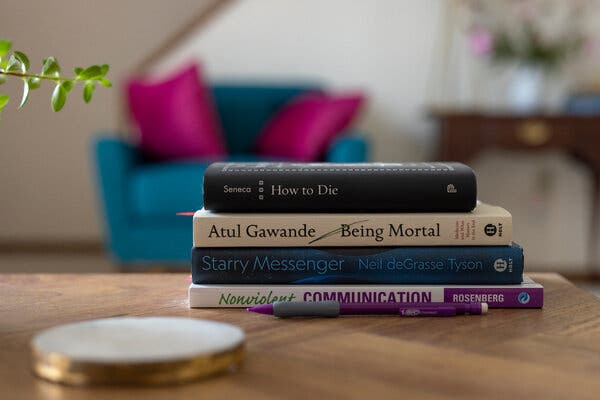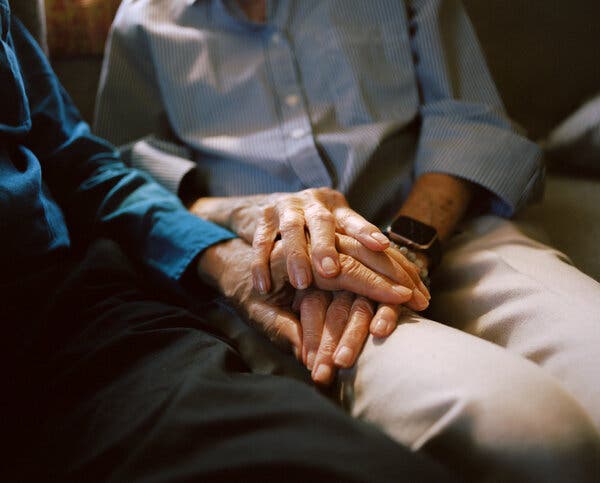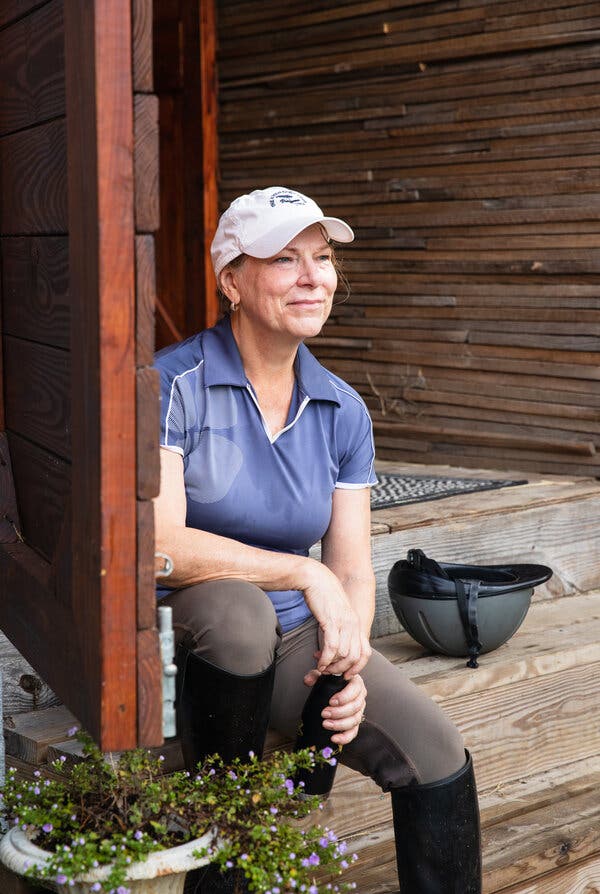It’s Never Too Late to Become a Nurse
“It’s Never Too Late” is a series that tells the stories of people who decide to pursue their dreams on their own terms.Joanna Patchett has always had a fear of death, and the dying.“I was terrified of being responsible for people’s lives, and was frightened of the space between life and death,” she said.And yet in July 2020, as coronavirus cases filled up hospitals, Ms. Patchett, who was fresh out of nursing school, found herself caring for extremely ill Covid patients in the intensive care unit at Binghamton General Hospital in upstate New York.“Seeing how sick everyone was — was heartbreaking. It was a life-changing and extremely difficult experience,” said Ms. Patchett, a 39-year-old Binghamton resident. “I didn’t expect to see so many people dying in quick succession, or to be on a floor full of ventilated patients, or intubating people so frequently, or being their primary person to have contact with them when the rest of the world could not.”As the pandemic worsened, Ms. Patchett said, there were many nights where she returned to her empty apartment and cried. Books pictured on her coffee table include “Being Mortal” by Atul Gawande.Lauren Petracca for The New York TimesMs. Patchett had dreamed of becoming an actress, but didn’t have much luck at the profession. In 2019, when she was 35, she went back to school, having been accepted into a one-year accelerated nursing program. Most of her classmates came to nursing straight out of college, and many fondly called her Mom. As the pandemic worsened, she was deeply moved by “how people would open up and be so vulnerable with us.”“You could see the humanity, how worthy everyone is of life, and how hard the body fights to live,” she said.Ms. Patchett never imagined her life would turn out this way. After getting a bachelor’s degree in English and drama from Ithaca College, she spent a decade feeling “lost and depressed,” bouncing from one job to another — teaching English and yoga, working in a dental office. She felt behind in life because she didn’t know what she wanted to do. “I knew I had something to give, but didn’t know what that was,” she said.“I was jealous of people who challenged themselves,” Ms. Patchett said. “I never had. If I was going to grow and find myself, I needed to try something scary. I had to take a risk and challenge myself.”It was her mother who cajoled her into nursing, sensing she’d be good in the field, even though Ms. Patchett disagreed. “I didn’t think I was equipped for that experience, or that I could handle it spiritually and emotionally.”As the stress of caring for Covid patients took a mental toll, Ms. Patchett adopted a rescue cat, Tanky. “I wanted something to love,” she said. “Tanky really helped me through Covid.”Lauren Petracca for The New York TimesBut over the past several years, that’s exactly where she found herself, despite the 12-hour shifts, the daily emergencies and the often harrowing emotional work. For Ms. Patchett, who lives alone, it was especially difficult to return to an empty apartment. Though her family lived only five miles away, she couldn’t see her relatives often because of the high risk of contracting the coronavirus, and there was nothing alive and vibrant to come home to. Many nights she returned from work and cried. As the intense stress of being an I.C.U. nurse took a mental toll on her, she adopted a cat, Tanky. “I wanted something to love,” she said. “Tanky really helped me through Covid. He is 15 pounds of furball love and emotional healing.”“To lose patients I’d become close to and have them die in such a devastating way made me question everything,” she said. “But I began to see this work as my duty. It was a war. I wasn’t going to let them die alone.”The following interview has been edited and condensed.Since, on your first nursing job, you unexpectedly found yourself assigned to the I.C.U. floor and caring for Covid patients, did you ever regret your decision to become a nurse?No. I never regretted this work or being here, even though it was terrifying. If anything, I found my calling. I wasn’t afraid to be the person watching someone die, or being with them when they were. I was good at being present as they passed, and I could work under a tremendous amount of stress.How did you find the strength to face your fears?I didn’t have a choice. You can’t run away from this kind of work. I found my ability to be challenged and then I found the strength to stay. I didn’t have the luxury of leaving sick people, nor did I want to. Someone had to be there. I knew it had to be me.Once you were accepted into a nursing program, you realized you were one of the oldest people attending. What was that like?I felt out of place. Most everyone was 20, 25-year-olds, pursuing nursing shortly after getting their first degree. They were bubbly. I didn’t feel part of that excited buzz. But Gen Z is a welcoming group. They didn’t have the judgment that was inside of me. Once we broke into clinical groups, we became very tight and depended on each other. We shared a lot of intense moments that gave me strength because we supported one another.How did it feel to have the younger students call you Mom?It was endearing. I watched out for them and made sure everybody was OK. I would bring food in case somebody hadn’t eaten. I became the person they turned to if they were going through a hard moment. I had experience from being older, something no one else had. And they made me feel I mattered; that made me feel special. I learned from them, too.After fighting to save Covid patients, Ms. Patchett switched to palliative care. “I wanted to help people control their death, rather than watch people die flailing and gasping,” she said.Lauren Petracca for The New York TimesWhat has being a nurse taught you?I’ve never had a job that was so meaningful or made me feel I was serving a purpose. Facing death helped me realize you can’t give up. Through nursing, I’ve learned life is going to be incredibly hard, and it’s going to hurt, but you have to make the choice to keep fighting — that’s part of living. I learned I matter, and I matter to people who are dying and who want me by their side as they are doing it.After 18 months of fighting to save Covid patients, you decided to switch to palliative care. Why?I burned out. I realized I had to move to another part of nursing. On the I.C.U. floor, I’d received a tutelage in death. I wanted to help people control their death, rather than watch people die flailing and gasping. When we seemed out of the woods for Covid, I started helping the elderly and those with terminal illnesses decide how they wanted to die. I’m now a hospice nurse case manager at Lourdes Hospice, an outpatient home end-of-life care provider, in Vestal, N.Y., where I interact with 20 to 30 families a week. And I’m part of deeper discussions that deal with the dignity of dying.What have you learned about yourself as you’ve learned to care for others?I have a voice that carries wisdom. I have a special ability to listen and to see people while being present with them in those very hard moments.What’s the best piece of advice you can offer?When it comes to changing your life, you sometimes have to decide to change. Once you do, almost anything is possible. Everything you do contributes to who you are now. Ironically, my yoga, acting and teaching training gave me the ability to stay grounded, present and in the moment. Not one part of your journey, even if you’re not sure what you’re doing, or where it’s going to lead you, is ever wasted. You’re never late; you’ve simply not arrived yet.
Read more →


